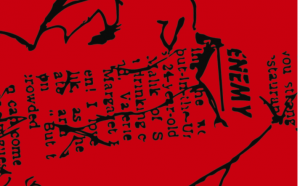The best lectures I have been to: An Interview with Amia Srinivasan
by Anandita Abraham | November 20, 2023
Pin-drop silence is not an easy feat in an Exam School room filled to over twice its capacity, but it is achieved weekly at Amia Srinivasan’s ‘Feminist Theory’ lectures. Necks crane, coughing is held back in throats, and an hour of cross-legged devotion promises to test hip strength. It is not that the Special Subject in Feminist Theory is a particularly popular paper (faced with scarcity, an economy redistributes, and Srinivasan will apologetically prioritise handouts for “people actually taking this paper!”). Rather, her audience is just interested (in feminist theory, in self-improvement, in eloquence, controversy, or appearances; in academic fulfilment).
Some are, but at her first lecture, I wasn’t aware of Srinivasan’s identity. When one, naturally, endeavours to discover more, one will unearth a disruptive collection of essays, The Right to Sex, and corresponding literary fame – her pioneering position in the University (she is the youngest person, first woman, and first person of colour to hold the Chichele Professorship in Social and Political Theory at All Souls), her London Review of Books essays – and, put in context, the gravity of every Tuesday afternoon.
Early in her first lecture of term, ‘What Is a Woman?’, Srinivasan asks about a Palaeolithic figurine – one of the earliest surviving representations of a woman: “is being worshipped a compensation for her captivity?” In the brief, pregnant pause after such prompts there is an urgency for listeners to think, with care. Later lectures touch on intersectionality, sexual racism on Grindr, whether pornography is free speech, and the relationship between feminism and capitalism. Srinivasan frames her content to force cultural and personal inquiry – she interrogates our desire (“what would women’s sexual choices look like if they were really free?”), our possibilities (“what if things were otherwise? What if there was no gender at all?”), and our neglect (“what epistemic work is being done by [ Oxford’s] decisions about what to memorialise and what to forget?”).
Her material is subversive in a few ways. Politics and philosophy students will be familiar with lecturers who treat outlying interpretations with sniff-and-ignore strategies in the battle to summarise, compress or outline swathes of literature. Srinivasan’s favourite analysis (seen also in her essay collection) is the idea that very few things – false rape accusations, white-feminist truisms, and gender included – can be understood without understanding constructed political systems of exploitation, hierarchy, and violence. Her lectures are narratively strung, quilted, and shape-shifting, but she takes her audience at their best. (A Biochemist friend, who came along primarily to spot rumoured attendee Emma Watson, was successfully distracted by Srinivasan.) But when suggesting that maybe mainstream feminism has got things wrong, or that we should interrogate why we desire some bodies and not others, she refuses to be misconstrued. Her defiant precision and hesitance to ‘moralise’ (also noticeable in responses to my interview questions) means that if she was trying to be self-effacing, this would fail the minute her method reveals expertise. That is, at the very end of her lectures – when she glances into the past at feminist struggle, and it nods back. Or the minute students practically sitting on each other, dazed and dewy-eyed, untangle themselves from the floor, filling the room with the likes of: “that was sooo good”.
What follows is an interview after such platitudes were expressed directly to Srinivasan post-lecture – any hopes she had of leaving unconfronted by the excitable, brave, or foolish, had long evaporated. My hopes, involving email back-and-forths whose intimacy would evade the average reader, had only just begun.

The lecture golden rule at Oxford seems to be that the audience at any given lecture tends to shrink as term progresses. Why have your Feminist Theory lectures defied this ‘golden rule’? Does this happen every year?
I think it has to do with a widespread hunger for a form of academic theory that feels engaged with, and indeed springs from, the worldly phenomena that young people want to think through – like patriarchal domination; the relationship between gender, race and class; the possibilities and limits of using the law to achieve social transformation; the nature and perils of political coalition; the connection between personal agency and political transformation. It can also never be underestimated how many people, especially but not only young women, come to feminism to understand their own experiences. Feminist theory is a particularly exciting set of intellectual resources because it is so wildly imaginative and creative, pushing the horizons of what we take to be thinkable and politically possible. I started giving these lectures in 2019. When the lectures have been in person, they have always drawn a large crowd from across the university, though I’m not sure if they have ever been as popular as they are this term. Certainly the lecture room has never been so tightly packed. That’s a gratifying feeling, but I also worry about everyone who ends up sitting on the floor.
You’ve faced some… shortages at lectures due to demand-supply factors out of your control. Why do you think students who aren’t taking this paper outnumber those who are?
I think it’s back to what I said earlier about the widespread hunger for a more worldly and engaged form of theorising. That applies across the board, beyond students of philosophy and political theory. Every year there are a lot of natural scientists and mathematicians who attend the lectures, and I really like that. In general, I think university should be a time of freewheeling exploration. That’s hard at Oxford, where the tutorial and essay-writing schedule is so demanding. But it’s great to see so many students manage it, and I really like the fact that most people in the audience at my lectures aren’t taking the paper. But I think it’s only fair that students who are actually taking the paper get a proper seat!
At the end of your lecture on sex, sexuality and sexual liberation, a friend told me they felt like they’d “learnt how to love.” Was that intentional?
I end that lecture by talking about the politics of desire – and in particular what if anything we should do about ‘politically ugly’ sexual desires, as in the case of sexual racism. I suggest that while it is true that we don’t exercise direct voluntary control over our desires, “there are perhaps questions for each of us to answer, by ourselves or better yet with the ones with whom we make intimate community, about the shape of our own desire”. I go on: “Here it is good to remember that desire can take us by surprise, leading us somewhere we hadn’t imagined we would ever go, or towards someone we never thought we would lust after, or love. In the very best cases, the cases that perhaps ground our best hope, desire can cut against what politics has chosen for us, and choose for itself”. So, while I’m not trying to teach my students how to love, I suppose I am trying to offer a particular (and unusual) picture of what it might mean to love, one that they might think more about. Though I should say that, in a more general sense, I do think that teaching is about teaching students how to love: how to love ideas, texts, knowledge and understanding. This is a very ancient view, one that goes back at least to Plato. But it is no less true now than then.
In the penultimate chapter of The Right to Sex, called ‘On Not Sleeping with Your Students’ you argue that actually, teaching can be erotic for some students, but that it’s the teacher’s job to turn that enthusiasm towards the material. And to act on, even consensual sexual or romantic attraction is a failure of teaching. You have put it as “the question isn’t whether ‘real’ romantic love is possible in the pedagogic context, but whether teaching is.” Do you have thoughts on other interruptions to the teaching process: the male favourite of the male professor, for instance, or the existence of professor-student selective dining clubs?
That’s a really good summary of that chapter. And I think you are absolutely right to note that the argument, in principle, extends to other forms of what you call ‘interruptions’ to the teaching process. As teachers, it is unavoidable – though we don’t generally talk about it – that we feel certain affinities for certain students. Often these students are just the ones who are especially excited about the material or the discipline, and so giving them additional pedagogic attention may be no bad thing. But I also think that this dynamic can be dangerous and unfair. It’s a natural human thing to like people who remind us of ourselves. But this can lead to unjust forms of favouritism and the structural replication of privilege. Which students, with what sort of cultural training and from what sort of backgrounds, will an Oxford tutor likely feel most affinity with? How is the allocation of ‘affinity’ and ‘attention’ likely to play out given that Oxford academics skew male, white and middle-class? I think these are questions that academics should think about more. They are central questions in the ethics of pedagogy.
If a world existed where womanhood was not a political state of being, what would it be, if anything? Are you convinced by any conception of an ideal or simply existing, woman?
I don’t know. One of the things that I find exciting about so much feminist theory is the way that it insists that we should be working to a horizon of political emancipation that we ourselves are not in a position to fully articulate. On such a view, we can struggle for greater degrees of liberation from the strictures of gender without articulating a final end-point. But, for what it’s worth, my own suspicion is that a fully liberated humanity wouldn’t think in terms of gender categories at all.
Do you ever have to emphasise a difference between the views of you, Amia, and the views of Amia in her capacity as an academic?
I think those of us who are lucky enough to have secure and permanent jobs in universities have a responsibility to speak our minds on issues of social and political consequence. I am consistently stunned by how many secure academics are unwilling to raise their heads above the parapet when it matters. So I don’t know if I have two different sets of views – one academic and one personal. But it is the case that there are parts of myself that aren’t part of my academic identity. I don’t like the idea of existing as a wholly public person. It’s not that I have a principled objection to it – I’m quite intrigued by academics and intellectuals who live their lives in public, who for example write ‘auto-theory’ or confessional essays. It’s just not something that is in my character.
You’ve mentioned in other interviews a dislike for when politics forces the hand, so to speak, of intellectuals or academia. I am curious – when you end with “I encourage you to think about…”, is what you say next framed by the political climate now?
Yes. Some of the issues that I cover in these lectures have, I think, a lot of relevance to contemporary ‘culture war’ questions, and you’re right that I often use the phrase “I encourage you to think about…” to signal when I think this. So, for example, I “encourage students to think about” the [Black lesbian feminist group] Combahee River Collective’s understanding of ‘identity politics’ – a phrase that seems to have been first used by the Collective – and how it differs from our contemporary version of that notion. In particular, I want students to reflect on the idea that, for the Combahee Collective, identity politics wasn’t about appealing to the first-personal authority of subjective experience, but about laying claim to objective material conditions. Similarly, I’ve “encouraged students to think about…” the challenge to intersectionality posed by the Black philosopher Tommy J Curry, which he argues systematically erases the situation of Black men. And I’ve “encouraged students to think about…” what the history of anti-porn feminism and its entanglements with the New Right might tell us about the contemporary politics of trans-exclusionary feminism. Generally when I say in a lecture “I encourage you to think about…” I think there is an interesting and highly relevant conversation to be had, but we just don’t have time for it in the lecture. So I hope it’s something that students will continue to think about, and talk to each other about, outside the lecture hall.
Did you have a lecturer who really stood out to you as a student?
Many. I was an undergraduate at Yale – like Oxford, it’s a very humanities-oriented institution, which places a lot of emphasis on undergraduate teaching. I had a lot of wonderful professors, and I attended a lot of lectures for papers I wasn’t taking. One legendary lecturer was my undergraduate thesis advisor, Karsten Harries, a philosopher who convened a wonderful course called ‘Art, Love and Beauty’. His lectures were masterpieces, at once philosophically deep and enormously moving. I also have a powerful memory of a lecture by a Yale Law professor, now dead, called Bo Burt, who gave a lecture to us as first-year undergraduates on the Book of Job. It made my every hair stand on end. Wanting to give lectures to students was for me was a big reason to become an academic. I wanted to do that thing that other people had done for me.
Has your experience of feminism at Oxford been that it is satisfactorily intersectional? Is something missing in top academic institutions when it comes to this?
I think most students at Oxford who think of themselves as feminists and are involved in feminist organising are good at thinking about other axes of oppression, like race, nationality, sexuality, and so on. But I think that feminism pretty much everywhere could stand to think more about class.
Captive octopuses might be aware of being perceived, as you have written – though they have no way to complain. And obviously, speaking to a full room is not the same as writing for an unseen audience. Are you conscious of being exposed to a different kind of gaze?
Interesting question. (Though I have to say that I think octopuses do complain all the time – by escaping, squirting water, refusing to engage in experiments. They just don’t complain in human language!) Yes, I’m very aware of audience, whether it’s when I’m writing or giving a lecture in Exam Schools or speaking on a podcast. I think the live student lecture is a very special thing, and I feel extremely protective of it. There is a kind of intimacy and spontaneity that happens in the lecture room – especially when the lecture is not being recorded for everyone and anyone to consume at a later point – that is, for me, precious. I really felt the loss of this during the pandemic, with online lectures. Interestingly, I could see the numbers of students who watched my lectures online, and it was a small fraction of the numbers that attend when I give the same lectures live. I think this speaks to the value of the lecture as event. It’s not just about the dissemination of information. It’s about the gathering together of people in a space to think together. And it is for this reason that I want to resist policies that would effectively kill off the lecture. It is also why I am disappointed when I hear undergraduates talk about how they don’t go to lectures. Lectures aren’t just about – or even primarily about – exam prep.
Should the obligations of teachers and lecturers to students only be about teaching and learning?
It depends on how broadly or narrowly we construe ‘teaching and learning’. My own preference would be to see those as expansive categories, so that when we say that teachers must care about their students’ learning, that means that they should care about things that go beyond the classroom – whether, to put it in a general way, the conditions of students’ lives are such that they can meaningfully learn. And a lot, as we know, goes into that.∎
Words by Anandita Abraham. Photograph by Tom Pilston.




